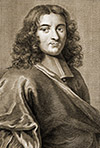ADVOCACY.
Mark Antony, the orator, never would publish any of his pleadings lest he should be convicted of speaking in one cause contrary to what it might be convenient to allege in another. The morality of the Bar did not deem it a scandal in those days for a lawyer to say and unsay things in favour of his client. The precautions of this advocate are necessary for persons of his profession, and yet not always sufficient to save their honour. I remember a letter that was published in the year 1685, inquiring into the causes of the contradictions of authors. The lawyers are there brought upon the stage, and here is what is said in regard to them. “ It is sometimes diverting enough to hear the same lawyer plead in one and the same week for a husband against his wife, and for a wife against her husband. If he have a fruitful imagination, he dwells altogether in his first plea upon the power of husbands, and grounds his arguments on nature, on reason, on the word of God, and on custom. He quotes the Scriptures, he quotes the fathers, the civilians, and those who have written travels. He
declaims against women, and dwells only on general propositions. Two days after the scene changes; he entertains other thoughts, quite contrary to the former. He calls the husband’s authority usurpation; he runs over the Holy Scriptures, the code, physic, history, and the moral law in favour of women, still haranguing on general principles; for a vehement spirit thinks it proves nothing, unless it affirms and denies without exception; and consequently if obliged to maintain opposite interests, must necessarily contradict itself.” It must be owned, that a lawyer, who has pleaded publicly with all the fire of his imagination for the privileges of women, might be confuted the easiest in the world next time he pleads for the privileges of men. There needs no more than referring him to his own minutes. It were easy to show, that lawyers are not the only persons who make use of this way; our polemic divines do the same, according to the different tenets of those they have to deal with. Bellarmine, disputing against the enthusiasts, maintains, that the Scripture abounds with characteristics of its own divinity, but insists against the Protestants, that it is obscure, and stands in need of the authority of the church. A certain minister, whom I shall not name, maintains against those of the Roman church, that the Scriptures exhibit throughout the character of divine; but writing against Mr Pajon, he uses another language. This privilege ought to be wholly left to poets and orators. Cicero has observed, that the good memory of auditors is the bane of lawyers who contradict themselves. Nor is it a less plague to ministers, who, far from contradicting themselves, repeat from time to time, almost word for word, the same sermon. If he had given examples, he might have made it appear, that the precautions of Mark Antony were insignificant; but it must be owned, that what he adds is sufficient to justify the conduct of that orator. It is this: Marcus Brutus pleading against L. Plancius, who was defended by L. Crassus, got two of his friends to stand up in court, and read out certain passages in an audible voice, which he had culled out of two speeches of L. Crassus; some of them highly raising the authority of the senate, and others depressing it. This put the orator a little out of temper, and obliged him to frame excuses on the difference of times and causes, which had extorted from him these contradictory opinions:—“ For my own part (says Cicero) I willingly follow the authority of many others, including the eloquent and wise L. Crassus, who undertook the defence of L. Plancius, against the accusation of M. Brutus, an energetic and artful orator. Brutus having procured two persons to repeat passages alternately out of two of his orations, which were contradictory to each other, Crassus is said to have been somewhat perplexed, and in his reply, set forth the different junctures of time, in order to show that what he had said resulted from the different circumstances of the case18." Thus Cicero disapproved the part which Crassus chose on this occasion. When he found himself in the same circumstances, his adversaries having repeated a passage in one of his speeches, quite contrary to an argument he had then in hand, he answered, that “ the passage which they repeated, did not contain his true sentiments; and that what a man offers as an advocate, ought not to be considered as if spoken by him in quality of a witness; that it is the language of the cause, and not that of the orator. They must speak according to the interest of the cause, and the conjuncture of time, and not according to their private opinions. If I indeed said anything of this kind, I neither offered it on my own knowledge, nor in quality of evidence; it was rather the language of the occasion than of my own judgment and authority. It is a great mistake in any one to look upon the orations which I have spoken in different causes, as so many written opinions under my own hand. They are all the language of the particular cause and time, and not of the orator himself19." Let it be remarked, that these principles subsist still20.—Art,Mark Antony,the Orator, Notes B and C.
